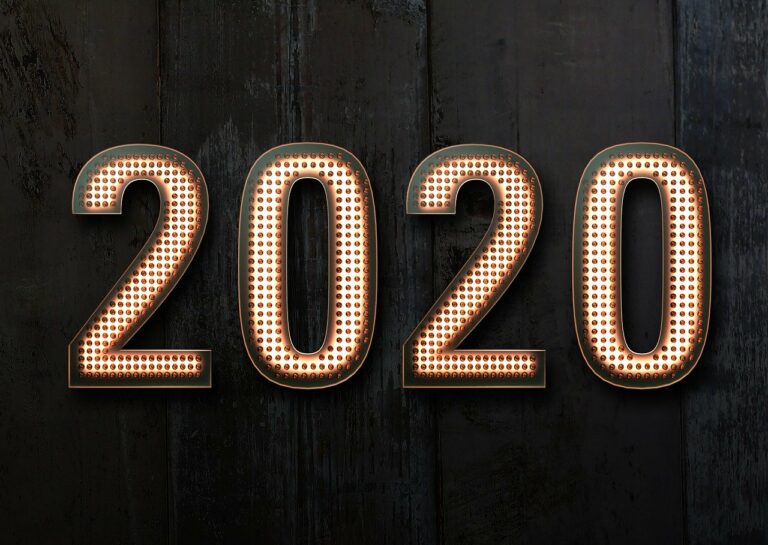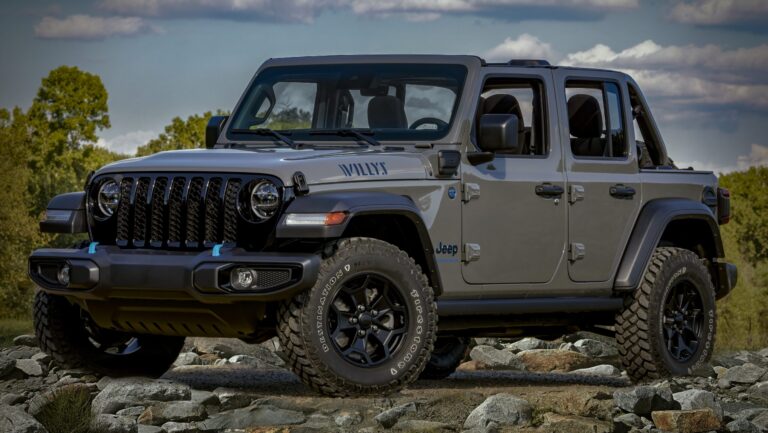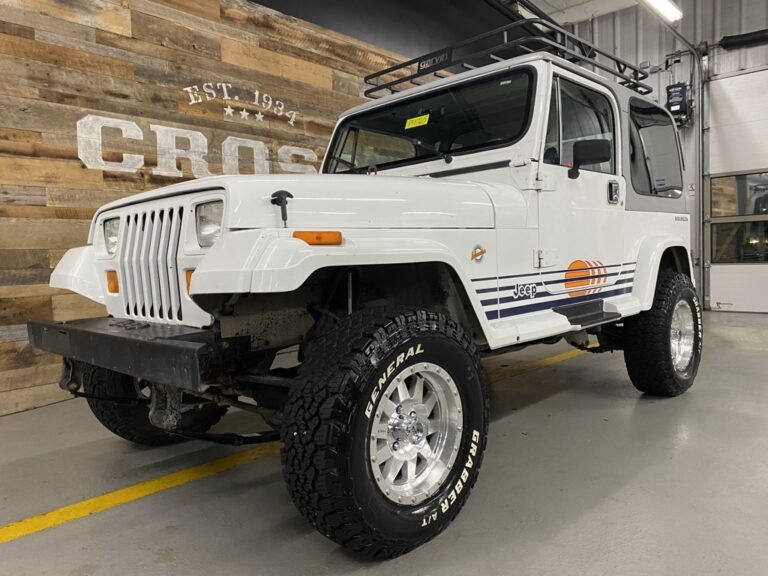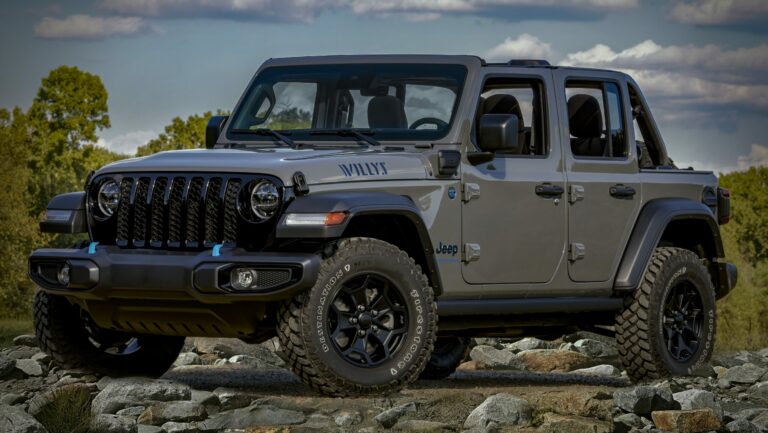99 Jeep Grand Cherokee Engine For Sale: Your Comprehensive Guide to a Heart Transplant
99 Jeep Grand Cherokee Engine For Sale: Your Comprehensive Guide to a Heart Transplant jeeps.truckstrend.com
The 1999 Jeep Grand Cherokee, particularly the first year of the revolutionary WJ chassis, holds a special place in the hearts of many SUV enthusiasts. Known for its blend of off-road prowess, comfortable ride, and sophisticated features for its time, it quickly became a beloved icon. However, like any vehicle approaching a quarter-century mark, the engine, the very heart of this capable machine, can eventually show its age. Whether due to high mileage, a critical failure, or simply the desire for renewed performance, finding a "99 Jeep Grand Cherokee Engine For Sale" becomes a crucial quest for owners looking to keep their cherished vehicle on the road. This comprehensive guide will navigate you through everything you need to know about sourcing, selecting, and successfully installing a replacement engine for your 1999 Grand Cherokee.
Understanding the 1999 Jeep Grand Cherokee Engine Landscape
99 Jeep Grand Cherokee Engine For Sale: Your Comprehensive Guide to a Heart Transplant
The 1999 model year was significant for the Grand Cherokee as it marked the transition from the ZJ to the entirely new WJ platform. This brought with it updated styling, improved interiors, and, critically, new engine options designed for enhanced performance and efficiency. For the 1999 Grand Cherokee, you primarily have two main engine choices:
-
The 4.0L PowerTech Inline-Six (I6): This engine is a legendary workhorse in the Jeep community. Known for its incredible durability, relatively simple design, and ample low-end torque, the 4.0L I6 was a carryover from previous generations, albeit with refinements for the WJ. It’s often praised for its longevity, frequently reaching 200,000 to 300,000 miles or more with proper maintenance. Common issues, when they do arise, often involve oil leaks (rear main seal, oil filter adapter), exhaust manifold cracks, and occasional head gasket failures in very high mileage examples. For many, its robust nature makes it the preferred choice for reliability.
-
The 4.7L PowerTech V8: New for the WJ platform in 1999, the 4.7L V8 offered a significant boost in horsepower and torque compared to the 4.0L, providing a more refined and powerful driving experience. This engine was a modern overhead cam design, a departure from the older pushrod V8s found in earlier Grand Cherokees. While generally reliable, early versions of the 4.7L V8 (including the 1999 model) can be susceptible to issues like cylinder head cracking (often leading to coolant consumption or misfires) and, less commonly, dropped valve seats, especially if overheating occurred. Despite these potential pitfalls, a well-maintained 4.7L V8 is a strong performer and offers a noticeable upgrade in driving dynamics.

Compatibility Note: It’s critical to know whether your 1999 Grand Cherokee originally came with the 4.0L I6 or the 4.7L V8. These engines are not interchangeable without significant modifications to the transmission, wiring harness, engine mounts, and PCM (Powertrain Control Module). Always replace your engine with the exact type it came with from the factory.
Why Buy a Replacement Engine? Common Scenarios
Owners typically seek a replacement engine for their 1999 Grand Cherokee for several compelling reasons:
- Catastrophic Failure: This includes severe issues like a thrown rod, seized engine due to lack of oil, severe overheating leading to warped heads or block, or a cracked block from freezing.
- High Mileage Wear and Tear: Over hundreds of thousands of miles, components wear out. This can manifest as excessive oil consumption, low compression in one or more cylinders, constant misfires, severe engine knocking, or persistent overheating that can’t be resolved.
- Accident Damage: In some accidents, the engine block or critical components can be damaged beyond repair.
- Cost-Effectiveness: For many, the cost of replacing the engine is significantly less than purchasing a new or even a newer used vehicle, especially if the rest of the Grand Cherokee (body, interior, transmission) is in good condition.
- Restoration or Upgrade Projects: Enthusiasts might replace an aging engine as part of a full restoration, or even as a preventative measure to ensure many more years of reliable service.
Where to Find a 99 Jeep Grand Cherokee Engine For Sale
The market for used and remanufactured engines is vast. Here are the primary avenues to explore:
-
Used Engine Suppliers & Salvage Yards:
- Pros: Often the most affordable option. Good availability, especially for common engines like the 4.0L. You might find a complete engine with accessories.
- Cons: Unknown history of the donor vehicle. Mileage can be high. Warranties are typically short (30-90 days) or non-existent. You’re buying "as-is."
- Tip: Look for reputable salvage yards that test engines before pulling them and offer some form of limited warranty.
-
Remanufactured/Rebuilt Engines:
- Pros: Essentially a "new" engine in terms of internal components. Critical parts (pistons, rings, bearings, camshaft, valves, seals) are replaced or machined to factory specifications. Often come with longer warranties (1-3 years, unlimited mileage). Provides peace of mind and often resolves common design flaws of the original.
- Cons: Significantly more expensive than used engines.
- Tip: Choose a remanufacturer with a strong reputation and verifiable quality control processes.
-
Online Marketplaces (eBay, Craigslist, Facebook Marketplace):
- Pros: Wide variety of options, potential for good deals from private sellers or smaller shops. You can often find engines locally to avoid shipping costs.
- Cons: High risk of scams or misrepresentation. Very limited or no warranty. Shipping can be complex and costly if buying from a distance.
- Tip: Exercise extreme caution. Always inspect the engine in person if possible. Ask for videos of it running or detailed photos. Use secure payment methods.
-
Specialty Jeep Parts Dealers:
- Pros: These companies often specialize in specific makes or models, meaning they have expert knowledge. They may offer higher-quality used or professionally rebuilt engines with better support.
- Cons: Prices can be higher than a generic salvage yard.
- Tip: Good for finding harder-to-source parts or for those who prioritize expertise and customer service.
Key Considerations Before Purchasing
Before you commit to buying an engine, ask yourself and the seller these crucial questions:
- Engine Type & Compatibility: Double-check the VIN of your Grand Cherokee and ensure the replacement engine is the correct 4.0L I6 or 4.7L V8. Ask for the VIN of the donor vehicle if buying used.
- Mileage: For used engines, lower mileage is generally preferred, but condition is paramount. A well-maintained 150k-mile engine can be better than a poorly maintained 100k-mile one. For remanufactured, mileage is irrelevant as internal components are new.
- Warranty: This is perhaps the most critical factor. What does the warranty cover (parts only, labor, shipping)? How long is it? What voids it? Get it in writing!
- Condition Assessment (for used engines):
- Visual Inspection: Look for obvious signs of damage, cracks, excessive corrosion, or major oil/coolant leaks. Check for intact sensors and connectors.
- Fluid Condition: If fluids are still in the engine, check their color and smell for signs of contamination (e.g., milky oil, burnt coolant).
- Compression Test: If possible, ask if a compression test was performed and request the results. Even cranking the engine by hand can give an idea of internal resistance.
- Known Issues: Ask if the donor vehicle had any known engine issues before it was salvaged.
- Completeness: Is it a "long block" (block, cylinder head(s), internal components) or a "complete engine" (includes intake manifold, exhaust manifold, alternator, power steering pump, A/C compressor, throttle body, etc.)? A complete engine is often more expensive but saves time and effort in swapping accessories.
- Shipping & Logistics: How will the engine be shipped? What is the cost? Is it crated? Who is responsible for freight damage?
The Purchase Process and Installation Tips
- Research and Compare: Don’t jump at the first engine you find. Compare prices, warranties, and seller reputations across different sources.
- Ask Detailed Questions: Be thorough. A reputable seller will be happy to answer all your queries.
- Get Everything in Writing: Any warranty, return policy, or specific agreements should be documented.
- Budget for Ancillary Parts: Even if you buy a complete engine, you’ll likely need new gaskets (intake, exhaust, valve cover), spark plugs, ignition coils, fluids (oil, coolant), filters, and potentially hoses or belts. These add to the overall cost.
- Professional Installation vs. DIY:
- Professional: Recommended for most. Engine replacement is complex, requiring specialized tools (engine hoist, transmission jack), knowledge of wiring, vacuum lines, and proper torque specifications. A professional shop can often provide a warranty on their labor.
- DIY: Only attempt if you have significant mechanical experience, the right tools, and a service manual. It’s a time-consuming and physically demanding job.
Potential Challenges and Solutions
- Finding the Right Engine: The 1999 model year can be tricky due to the ZJ/WJ transition. Double-check part numbers and VIN compatibility. If you’re struggling, broaden your search geographically or consider a remanufactured unit.
- Warranty Issues: If a problem arises, having a clear, written warranty is your best defense. Follow all warranty procedures carefully (e.g., proper break-in, use of specific fluids).
- Hidden Damage (for used engines): This is the biggest risk. A good return policy from the seller is crucial. Consider having a mechanic inspect the engine upon arrival before installation.
- Installation Difficulties: Refer to your factory service manual. Don’t force anything. If stuck, consider hiring a professional for the specific step or the entire job.
- Cost Overruns: Always budget an additional 15-25% for unforeseen parts, shop supplies, and potential surprises during installation.
Practical Advice and Actionable Insights
- Don’t Rush: Take your time to research and find the best engine for your needs and budget.
- Prioritize Warranty: Especially for used engines, a solid warranty provides invaluable peace of mind.
- Verify Everything: Confirm engine type, VIN compatibility, and what’s included with the engine before payment.
- Factor in All Costs: Remember to account for the engine itself, shipping, ancillary parts, and installation labor.
- Consider Remanufactured: While more expensive upfront, a quality remanufactured engine often offers the best long-term value and reliability.
Estimated Price Table: 99 Jeep Grand Cherokee Engine For Sale
Please note: These are estimated price ranges in USD and can vary significantly based on engine condition, mileage, seller, location, current market demand, and whether accessories are included. Always get a specific quote.
| Engine Type | Condition | Estimated Price Range (USD) | Typical Warranty | Notes |
|---|---|---|---|---|
| 4.0L PowerTech I6 | Used (High Miles) | $800 – $1,500 | 30-90 Days Limited | Pulled from running vehicles, higher mileage (150k+). Best for budget, but higher risk. Often "long block" only. |
| 4.0L PowerTech I6 | Used (Low Miles) | $1,500 – $2,500 | 90 Days – 6 Months | From lower mileage donor vehicles (<100k miles). Harder to find. Often includes some accessories. |
| 4.0L PowerTech I6 | Remanufactured | $2,500 – $4,000 | 1-3 Years / Unlimited | Fully rebuilt to factory specs with new internal components. Best reliability and warranty. Usually a "long block" with some new external parts (e.g., oil pump). |
| 4.7L PowerTech V8 | Used (High Miles) | $1,000 – $1,800 | 30-90 Days Limited | Similar risks as high-mileage 4.0L. Be wary of overheating history. Often "long block" only. |
| 4.7L PowerTech V8 | Used (Low Miles) | $1,800 – $3,000 | 90 Days – 6 Months | From lower mileage donor vehicles (<100k miles). Harder to find due to more specific demand. Often includes some accessories. |
| 4.7L PowerTech V8 | Remanufactured | $3,000 – $5,000 | 1-3 Years / Unlimited | Fully rebuilt with updated components to address common issues. Premium price for premium reliability. Usually a "long block" with some new external parts. |
| Installation Labor | N/A | $800 – $2,000+ | Varies by Shop/Region | This is the labor cost only, assuming you provide the engine. Can vary widely based on complexity (4.0L generally easier), shop rates, and additional work required (e.g., new motor mounts). |
| Ancillary Parts/Fluids | N/A | $300 – $800+ | N/A | Gaskets, spark plugs, fluids, filters, hoses, belts, potentially sensors, motor mounts, etc. Essential for a successful swap. |
Frequently Asked Questions (FAQ)
Q1: Can I swap a 4.7L V8 into my 1999 Grand Cherokee that originally had a 4.0L I6?
A1: While technically possible, it is extremely difficult and not recommended for most. It requires significant modifications to the transmission, wiring harness, engine mounts, PCM (Powertrain Control Module), cooling system, and exhaust. It’s far more practical and cost-effective to replace the engine with the exact type it came with.
Q2: What’s the difference between a "long block" and a "complete engine"?
A2: A long block typically includes the engine block, crankshaft, connecting rods, pistons, cylinder head(s), camshaft(s), and valve train components. It does not include external accessories like the intake manifold, exhaust manifold, alternator, starter, power steering pump, A/C compressor, throttle body, or sensors. A complete engine (sometimes called "turn-key") includes all these external components, though some may still require you to swap over a few items from your old engine.
Q3: How much does engine installation typically cost?
A3: Labor costs for an engine swap can range from $800 to over $2,000, depending on your location, the shop’s labor rate, and the complexity of the specific engine (4.0L I6 is generally simpler than 4.7L V8). This does not include the cost of the engine itself or ancillary parts.
Q4: What should I specifically look for when inspecting a used engine?
A4: Look for signs of severe rust or corrosion, cracks in the block or cylinder head(s), obvious oil or coolant leaks, broken sensors or wiring, and excessive sludge under the oil fill cap. Try to turn the crankshaft by hand (with a wrench on the main pulley bolt) to feel for any binding or rough spots.
Q5: Are there common problems I should be aware of with 1999 Grand Cherokee engines?
A5: Yes. For the 4.0L I6, common issues include oil leaks (rear main seal, oil filter adapter), exhaust manifold cracks, and occasional head gasket failures at very high mileage. For the 4.7L V8, early models can be prone to cylinder head cracking (leading to coolant consumption) and, less commonly, dropped valve seats, especially if the engine has been overheated.
Q6: Is it worth replacing the engine in a 1999 Grand Cherokee?
A6: Often, yes! If the rest of your Grand Cherokee is in good condition (body, frame, transmission, interior), replacing the engine can be a very cost-effective way to get many more years of service out of a vehicle you love. The ’99 WJ is a capable and comfortable SUV, and a new engine can breathe new life into it for a fraction of the cost of a new vehicle.
Conclusion
Finding a "99 Jeep Grand Cherokee Engine For Sale" doesn’t have to be an overwhelming ordeal. By understanding the specific engine options, knowing where to look, diligently assessing potential purchases, and planning for the installation, you can successfully give your beloved Grand Cherokee a new lease on life. Whether you opt for a budget-friendly used engine or invest in a reliable remanufactured unit, the journey of an engine swap is a testament to the enduring appeal and capability of the 1999 Jeep Grand Cherokee. With the right engine and proper care, your WJ can continue to tackle trails, commute daily, and create new memories for years to come.






